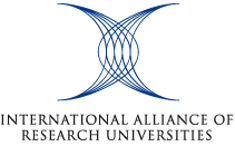History of the Congress
The University of Copenhagen hosted an International Scientific Congress on climate change under the heading "Climate Change: Global Risks, Challenges and Decisions", 10-12 March 2009 in Copenhagen, Denmark. The congress was organised in cooperation with nine other universities in the International Alliance of Research Universities (IARU).
The main aim of the congress was to provide a synthesis of existing and emerging scientific knowledge necessary in order to make intelligent societal decisions concerning application of mitigation and adaptation strategies in response to climate change.
The congress aimed to identify and synthesise the science, technology and policy advances required in order to ensure sustainability of global communities in the current and coming decades.
The findings of the congress should be seen as a supplementary to the work of the Intergovernmental Panel on Climate Change (IPCC). The congress provides a summary of existing scientific knowledge two years after the last IPCC report.
Output of the Congress
The congress took place in the run-up to the United Nations Climate Change Conference (COP-15) in Copenhagen in December 2009. The six preliminary messages from the congress were handed over to the Former Prime Minister of Denmark on 12 March 2009 .
Two products were to be produced based on the presentations and discussions at the International Scientific Congress Climate Change: Global Risks, Challenges & Decisions. All findings were to be compiled in a book on climate change, and a synthesis report with the main findings was to be handed over to policy makers before the COP15.
The synthesis has the purpose of explaining the current state of understanding man-made climate change and what we can do about it to the non-scientist, i.e. politicians, media and interested citizens and builds upon the six preliminary messages handed over to the Former Prime Minister at the closing of the session. These Six Messages were drafted by the Writing Team (see below) based on input from the session chairs and a reading of the 1600+ abstracts submitted to the congress. The book is aimed at an academic audience. The book is to include more detailed scientific results from the sessions and will be published by Cambridge University Press in 2010. It will be an extension and elaboration of the synthesis report.
The synthesis report was presented on the 18 June 2009. The book is under way.
Who's writing the Synthesis Report and the Book?
A Writing Team consisting of 12 internationally respected scientists from all continents is responsible for developing both products.
When the synthesis report was drafted by the Writing Team, it was discussed in the Scientific Steering Committee and reviewed by the Earth System Science Partnership (ESSP), the session chairs of the congress, and a group of experts identified by the IARU universities. In keeping with normal scientific practice a procedure for producing the synthesis report that has been adopted optimises the chances of arriving at a product that will receive a broad backing from the scientific community and that explains current understanding in climate change science.
The Writing Team is also responsible for writing the book.
Members of the Writing Team (in alphabetical order)
* Professor Joe Alcamo
* Dr. Terry Barker
* Professor Daniel Kammen
* Professor Rik Leemans
* Professor Diana Liverman
* Professor Mohan Munasinghe
* Dr. Balgis Osman-Elasha
* Professor Katherine Richardson
* Professor John Schellnhuber
* Professor Will Steffen
* Professor Lord Nicholas Stern
* Professor Ole Wæver
UN Conference on Climate Change
COP15 was the UN Conference on Climate Change held in Denmark, December 2009.
The Danish government handed over the results of the scientific congress to decision makers at the COP15 conference.
Mission Statement
"Climate change represents a clear and unprecedented challenge for human society. This symposium focuses on providing a synthesis of existing and emerging scientific knowledge necessary in order to make intelligent societal decisions concerning application of mitigation and adaptation strategies in response to climate change. The symposium aims to identify and synthesise the science, technology and policy advances required in order to ensure sustainability of global communities in the current and coming decades".

